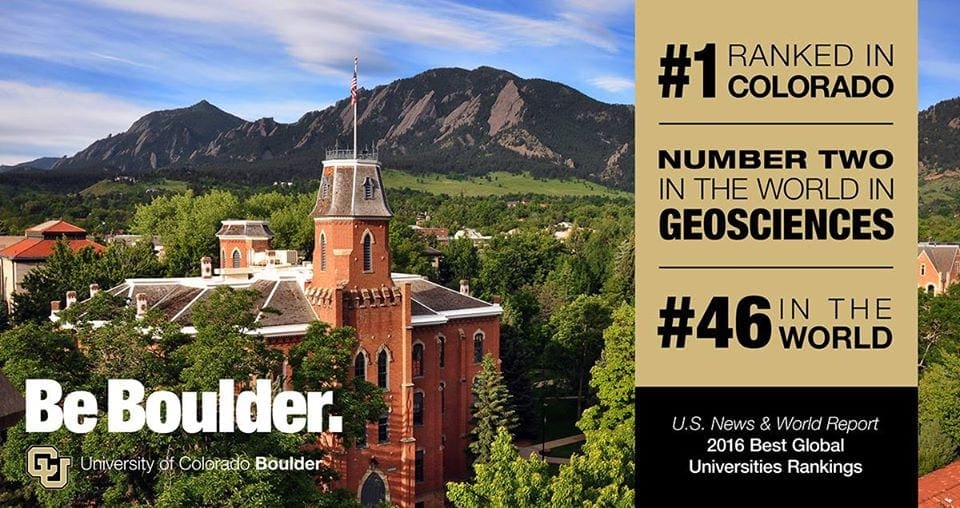University of Colorado Boulder ranking consistently attracts significant interest, reflecting the institution’s prominence in higher education. This comprehensive analysis delves into various aspects influencing CU Boulder’s standing, examining national and international rankings, academic program performance, research contributions, and student life. We’ll explore the methodologies employed by ranking organizations, compare CU Boulder to peer institutions, and discuss factors contributing to its overall reputation.
From its rigorous academic programs to its vibrant campus culture, CU Boulder offers a unique educational experience. Understanding its ranking across different metrics provides prospective students, faculty, and the broader community with valuable insights into its strengths and areas for potential improvement. This exploration aims to present a balanced perspective, considering both quantitative data and qualitative observations.
Reputation and Brand Perception: University Of Colorado Boulder Ranking

The University of Colorado Boulder enjoys a strong reputation, particularly within the Western United States and for its renowned programs in fields like aerospace engineering, environmental studies, and business. However, its overall brand perception is multifaceted and influenced by various factors, impacting its standing in university rankings.
The positive perception of CU Boulder stems largely from its stunning location in the foothills of the Rocky Mountains, its strong research output, and a vibrant student life. Its highly regarded faculty, many of whom are leaders in their respective fields, also contribute significantly to its prestige. Furthermore, successful alumni networks further bolster the university’s image and attract prospective students. However, negative perceptions, while less prevalent, exist and often center on concerns about affordability, increasing competition for admission, and the challenges associated with living in a high-cost area like Boulder.
Factors Contributing to Positive Perception, University of colorado boulder ranking
CU Boulder’s positive brand image is cultivated through a combination of tangible achievements and intangible qualities. Its consistently high rankings in various subject areas, coupled with a strong reputation for research and innovation, attract top-tier faculty and students. The university actively promotes its research accomplishments through publications, media outreach, and partnerships with industry leaders. The beautiful campus setting, opportunities for outdoor recreation, and a thriving student community create a desirable learning environment, further enhancing its appeal. The university also actively engages with the broader community through outreach programs and collaborations, fostering positive relationships and strengthening its reputation.
Factors Contributing to Negative Perception
While CU Boulder’s reputation is largely positive, challenges exist. The high cost of living in Boulder, coupled with rising tuition fees, can create financial barriers for prospective students from lower socioeconomic backgrounds. Increased competitiveness for admission, reflected in lower acceptance rates, can lead to some applicants perceiving the university as less accessible. Negative media coverage concerning specific incidents or controversies, while infrequent, can also impact the university’s overall image. Finally, the perception of a predominantly affluent student body might alienate some prospective students seeking a more diverse environment.
Impact of Image and Reputation on Rankings
CU Boulder’s strong reputation directly influences its rankings. High-ranking universities attract highly qualified applicants, leading to increased selectivity and improved academic outcomes. A positive reputation among faculty also attracts top talent, contributing to improved research output and teaching quality. Furthermore, a strong alumni network can contribute to increased funding and support for the university, enabling it to invest in facilities and programs that further enhance its reputation. Conversely, negative perceptions can negatively affect applicant pools, faculty recruitment, and funding opportunities, potentially leading to lower rankings. Therefore, maintaining a positive image and actively addressing areas of concern are crucial for CU Boulder’s continued success in university rankings.
In conclusion, the University of Colorado Boulder’s ranking reflects a multifaceted institution with significant strengths across academic programs, research, and student life. While numerical rankings provide a useful snapshot, a holistic understanding requires considering the institution’s broader impact and commitment to its students and the wider community. Further research into specific areas of interest will allow for a more nuanced appreciation of CU Boulder’s unique contributions to higher education.
The University of Colorado Boulder consistently ranks highly among public universities, often competing with prestigious private institutions. Its strong programs frequently draw comparisons to those at universities like Rice, whose rankings you can explore via this helpful resource: Rice University US News Rankings &. Ultimately, CU Boulder’s ranking reflects its commitment to both academic excellence and a vibrant campus life.
The University of Colorado Boulder consistently ranks highly among public universities, known for its strong research programs and beautiful campus setting. For a different perspective on university news and updates, you might check out the latest happenings at other institutions like Monmouth University; you can find recent updates on their website Monmouth University News Recent Updates.
Returning to CU Boulder, its ranking often reflects its commitment to both academic excellence and student life.



